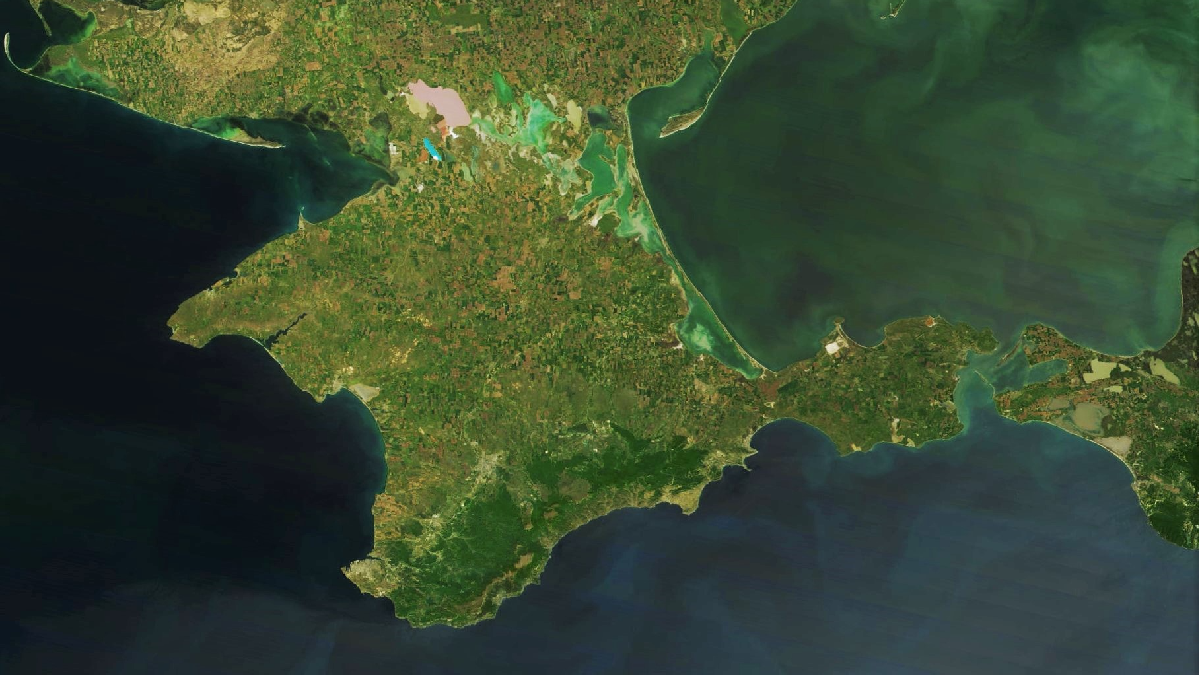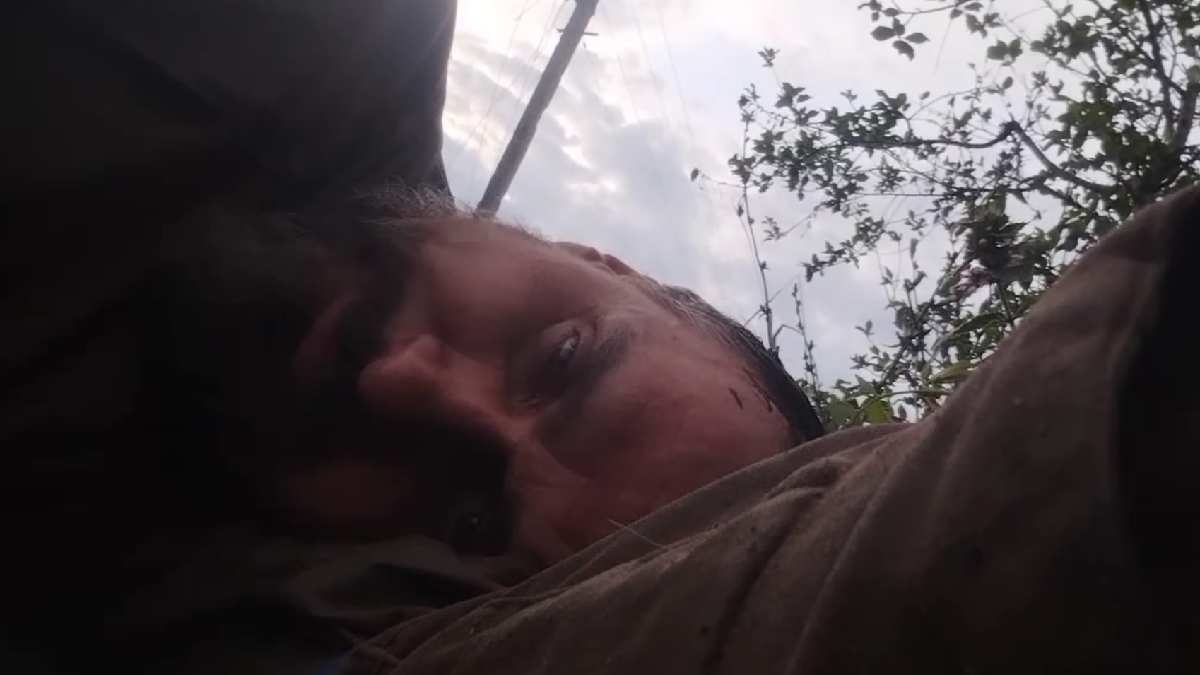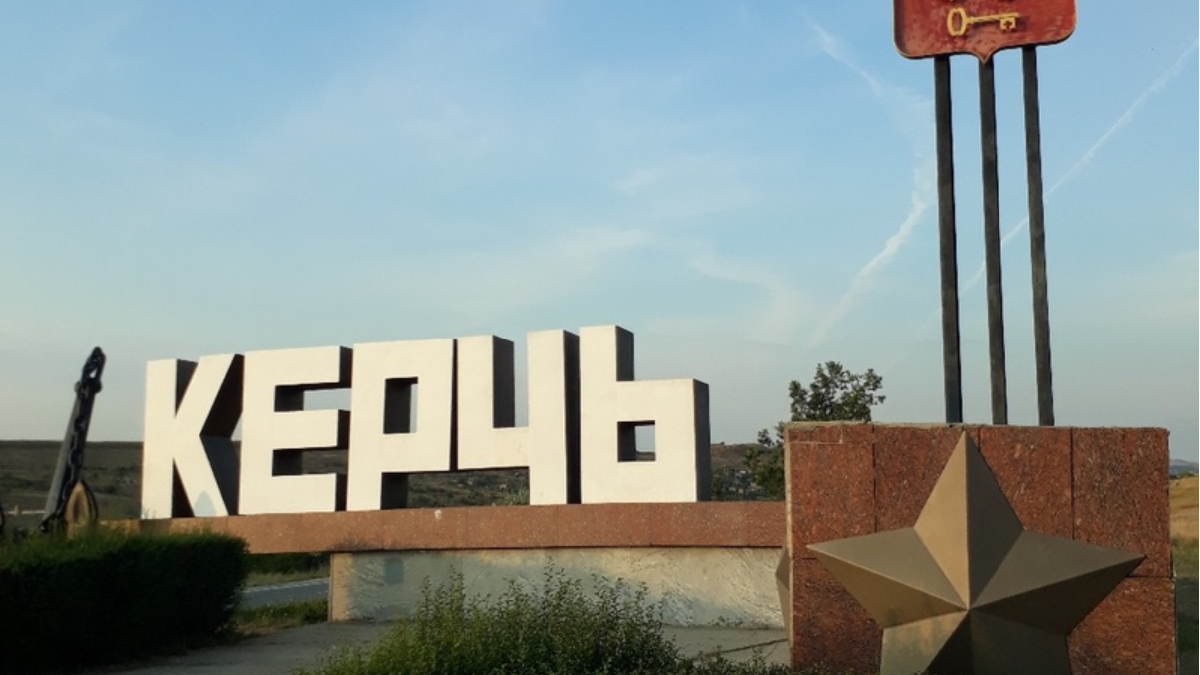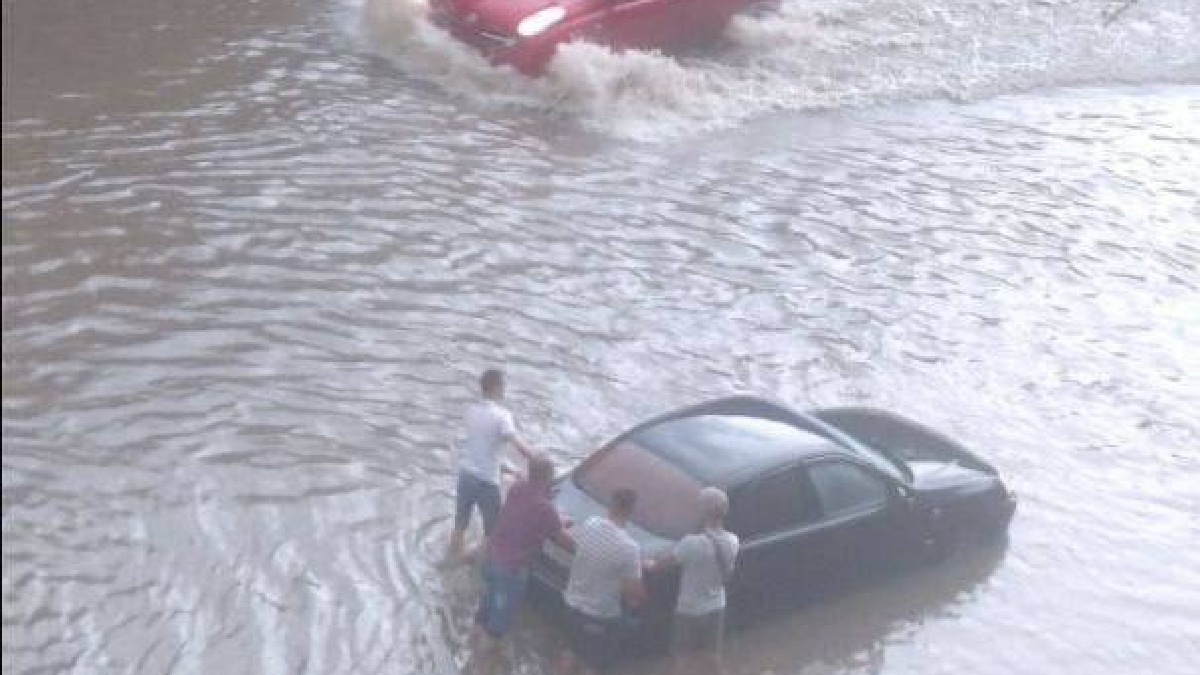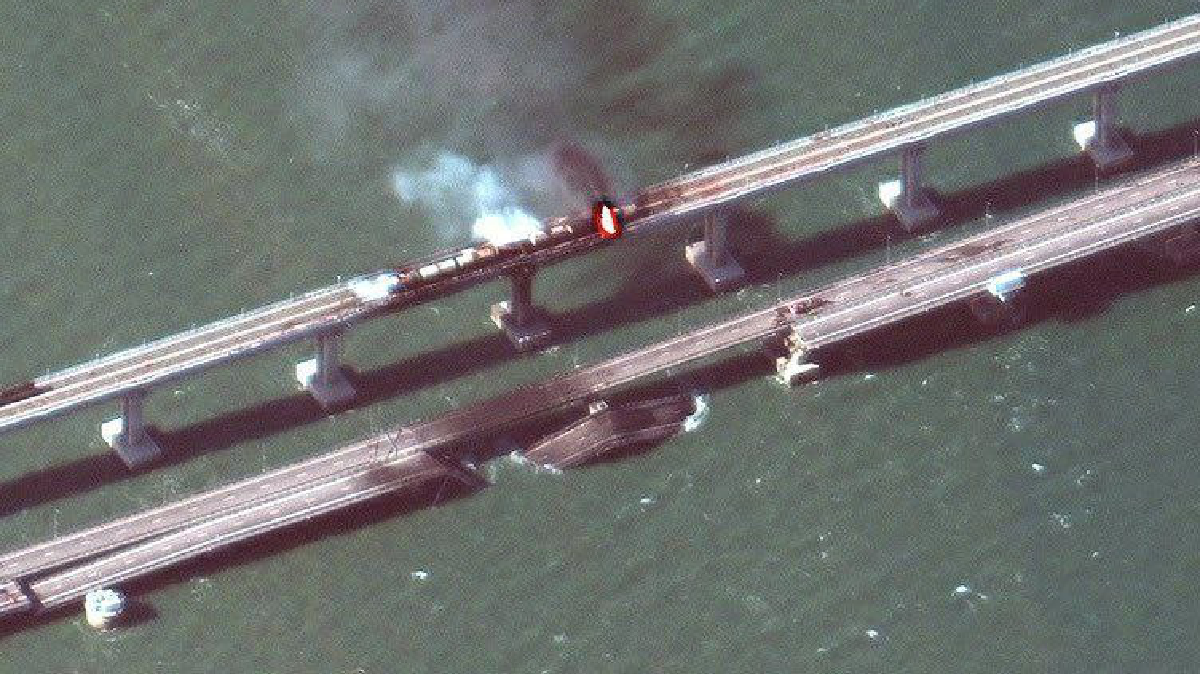On June 17-18, a three-month norm of precipitation fell in occupied Crimea because of prolonged heavy rains
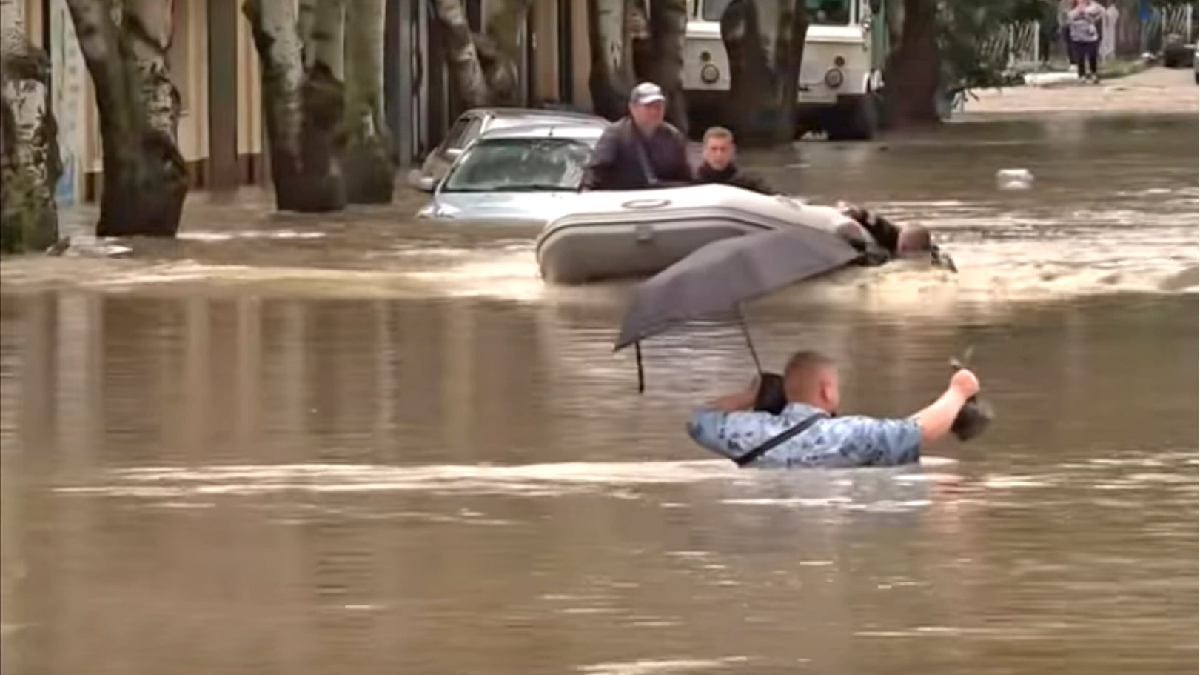
Suspilne Crimea collected the consequences of the floods in the most affected areas of the peninsula - Kerch and Yalta, as well as learned from locals about the causes of the disaster and how the “local authorities” exacerbated the devastating effects. The editorial office also asked the expert’s opinion on this issue.
On June 23, the Boris Sreznevsky Central Geophysical Observatory on Facebook reported that on June 18, 2021, they recorded a record amount of precipitation per day at the Ai-Petri meteorological station - 295 mm, which is equal to three monthly norms. This is 17 mm more than the previous climatic record of Ukraine, recorded on September 2, 1991, at the meteorological sites of the Karadag Research Geophysical Observatory.
In those days, the weather passed through the east of Crimea and came to Yalta and Sevastopol. The streets and subways of Yalta were flooded. Heavy rains flooded Kerch, lots of people were evacuated from their houses, rivers overflowed the streets, cars floated on the road.
Feodosia, Leninsky, and Kirovsky districts were affected, electricity, communication, and the Internet were partially cut off. In Yalta and Kerch, the occupiers declared a state of emergency.
In the city of Yalta, the flood caused one death, over 50 people were injured, one person went missing on June 18, she remains missing.
Because of the flood, hundreds of Crimeans were left homeless, but the period for filing applications for compensation was limited by the occupation “power” of the peninsula to two weeks. The deadline ended at midnight on June 30th.
For the lost property, the residents of the peninsula are offered compensation of 100,000 rubles, and for its partial loss - 50,000 rubles. Also, each victim can receive 10,000 rubles of a lump sum. The occupation “chairperson” of Crimea, Sergey Aksyonov stated it.
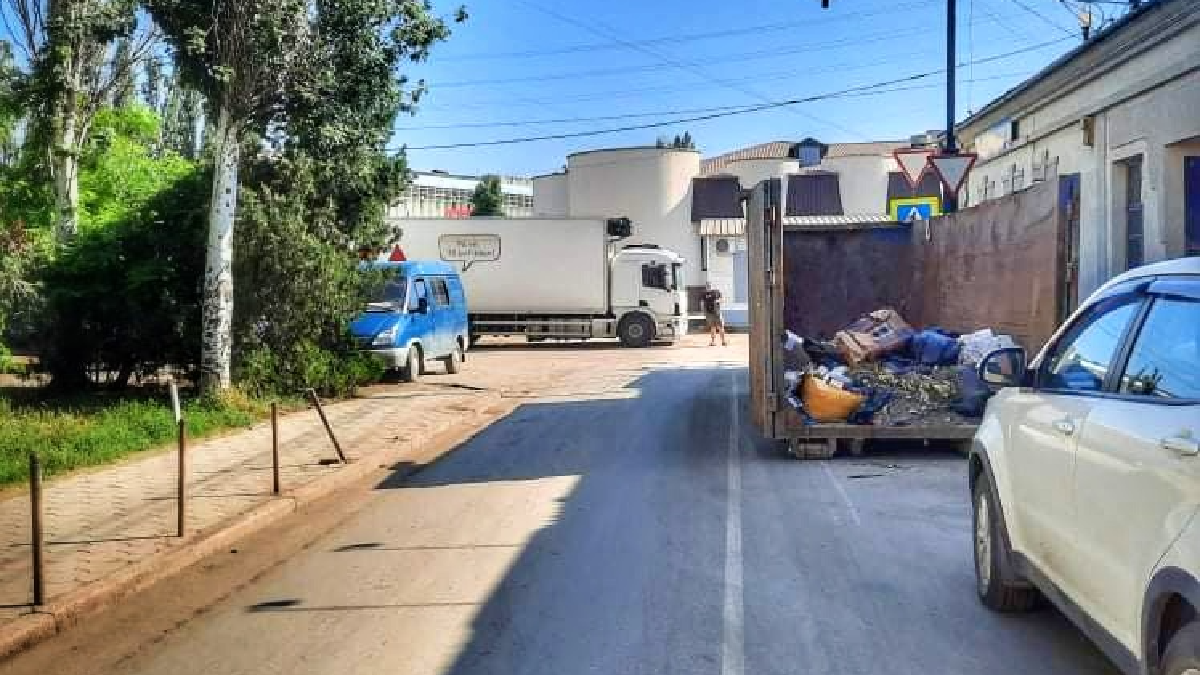 Source: Suspilne Crimea
Source: Suspilne Crimea
What is happening in Kerch now
A resident of Kerch (the editorial office does not publish his name for security reasons - ed.) told Suspilne Crimea that the downpour in the city began on June 17 and did not stop throughout the day. The consequences of the flood have not yet been eliminated.
“Any prolonged rain, even if it lasts for one hour, is already a problem for the city centre. It has always been this way, but this time, the duration of the rain was added to the untreated drains. The sewage system drowned the city centre. Personally, I did not feel the consequences significantly: my balcony was slightly flooded and deliveries from the Internet were delayed for a week, but there are acquaintances whose private homes were flooded, household appliances burned down, cars sank. Some people used public transport that day and drowned in the city centre. People stayed inside the buses for four hours”, - he said.
“The river in the centre of the city was neglected. It has not been cleaned for a long time, and it is overgrown with reeds and even trees. The local authorities could not clean it, because now it has federal subordination, not municipal, and that’s why it turned out that way”, - he said.
According to our interlocutor, at first, the city was put in order, janitors worked.
“After the flood, working hours were added. Instead of 3 p.m., they went home at 9 p.m. But, as far as I know, they did not receive financial allowances. About five days ago, the Russian military blocked several central streets and shovelled the remains of dirt and stones. Today, several buses of the Ministry of Construction brought the so-called volunteers. They swept these streets with brooms, but if you go to the Kerch yards, the picture has changed little there”, - said the city resident.
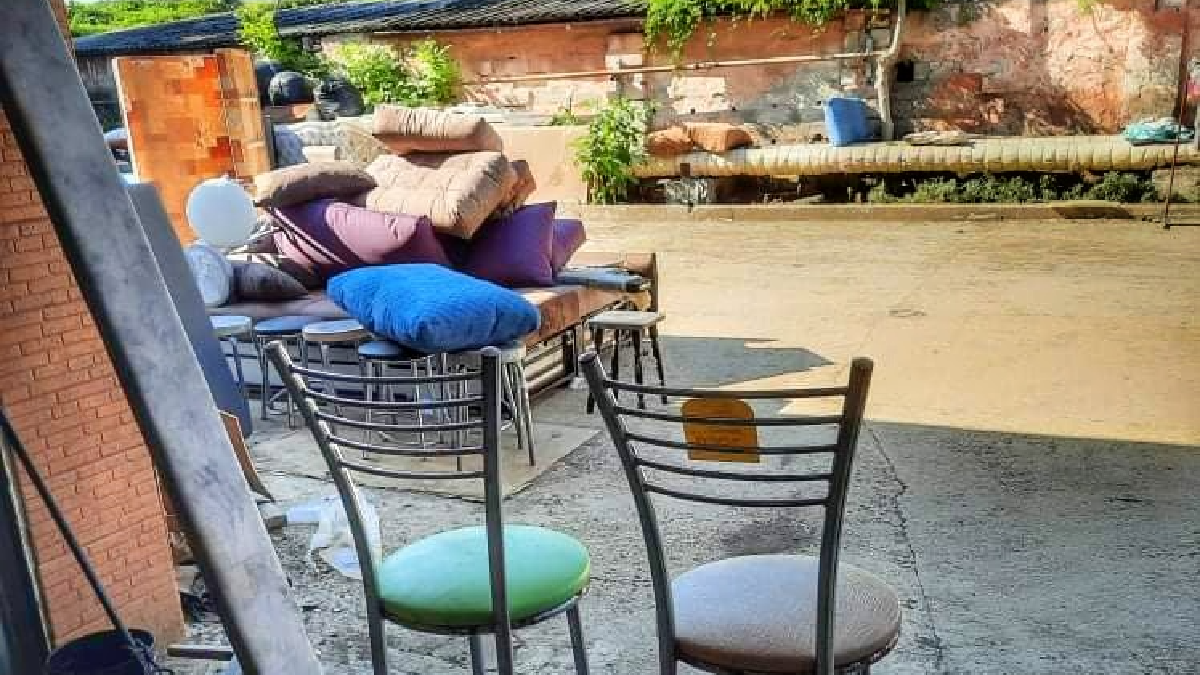 Source: Suspilne Crimea
Source: Suspilne Crimea
Yalta and the consequences of the flood
A resident of Yalta, Igor (name changed for security reasons - ed.) has lived in Yalta all his life. He says it rained in Yalta for two days in a row, on June 17 -18, but the first signs of disaster were already visible on the morning of June 18, when one of the two rivers flowing from the mountains to the sea, the Vodospadna river, began to overflow.
By noon on June 18, the second river, the Bystra, overflowed its banks. Thus, the city was simply cut by the flood into three parts.
“The central part, which is in the lowlands, and the areas along the rivers were completely flooded. The flood was also accompanied by a mud flow. The rains stopped in the evening of June 18, and the water receded. On June 19, it was already possible to move around the city on foot, although the streets were still in the mud", - he said.
According to him, the city was not ready for any natural disaster.
“The authorities and residents are accustomed to the fact that we have a mild climate, and nothing threatens us. For example, in winter, during heavy snowfall, we do not particularly care about clearing snow or sprinkling the streets with sand. They just wait until everything melts. The same happened during the flood. The authorities did not clear up riverbeds in advance (for example, the Vodopadnaya riverbed in the city was almost overgrown with bushes in some places), and did not care about rain runoff on the streets.
I think in some places, it was possible to use sandbags so that the river would not flow out of the riverbed. In general, rescue operations began only when the downpour ended, and the water gradually began to recede", - Igor said.
Igor calls the key problem that the seawater is now polluted, and the beaches are still closed. Residents of the village of Ai-Vasyl, located along the river, also suffered heavy losses.
“Of course, first, a natural factor is to blame. But the local “authorities” were not ready for such challenges. And this even though soon before that there were floods, in Kerch and Simferopol. Another problem is the lack of notification of citizens and tourists by the Ministry of Emergencies. I think that some important information could be sent by SMS. Fortunately, our house is located on a hill, so the water passed us by. But I know many people have lost their cars, their homes, and some areas had been without electricity and internet for several days due to power outages.
Due to the landslide, the city ambulance station was blocked. Therefore, calling doctors was a big problem. The water supply was suspended for several days because of the siltation of the water mains. Water was delivered by water trucks and distributed free of charge. Public transport resumed full operation in 10 days. Clearing the streets, pumping out water from flooded areas and underpasses, mostly, has already been completed, but in some places it continues", - he said.
An expert opinion
Alexander Liev, who worked as the Minister of Resorts and Tourism of Crimea before the occupation of the peninsula in 2014, and headed the Committee on Water Management of the Autonomous Republic of Crimea, reported that Crimea is located in a difficult climatic zone, so tropical heavy rains are common there.
The expert says that in 2010 Ukraine developed a package of documents to eliminate such disasters.
“As for floods, these are decisions that include clearing riverbeds and some other measures. It all passed the examination. For this purpose, Ukraine allocated a lot of money, more than half a billion dollars, and in 2013 this money began to flow into Crimea.
Within seven years we had to solve this problem completely. Unfortunately, no one has done this during these seven years of occupation, and the problem continues to grow", - he said.
The former minister believes that a similar situation will be repeated in Crimea many times. Another flood may await the Crimean people this summer if the necessary measures are not taken.
“Who is now responsible for organizing such events? Ukraine could, but, unfortunately, Crimea is occupied, so the responsibility lies with the occupiers.
Of course, all the claims of the Crimean people, including material, can be legally addressed to the occupying country. Crimeans have the right to demand compensation for damage, even moral damage from such situations.
Almost 100 per cent of the houses in the centre of Kerch and most houses in Greater Yalta were flooded", - the expert said.
According to Liev, since 2010 the agency has been preparing a program that has passed examinations. This is a voluminous document, where about 50 rivers were recorded.
“Each river had been surveyed, marked, cleared. It was a rather complicated procedure. For each of these rivers, design documentation, expertise was made, funds were allocated. This happened in Ukrainian Crimea. If it were not for Putin, we would have been engaged in the development of tourism, and not the development of military bases", - he stressed.

